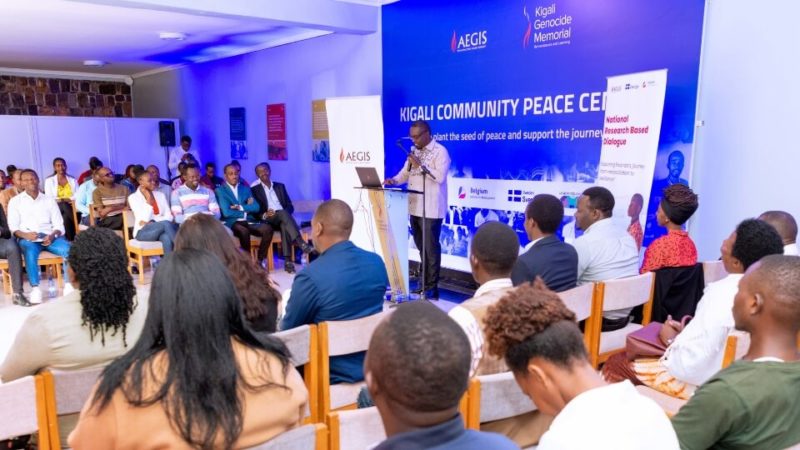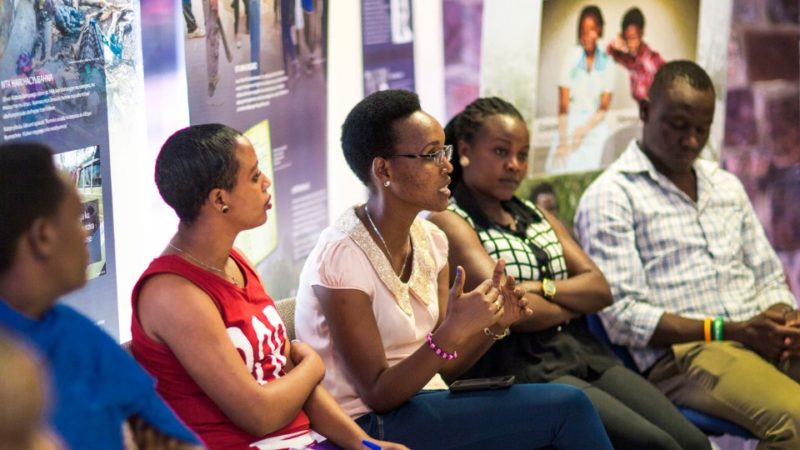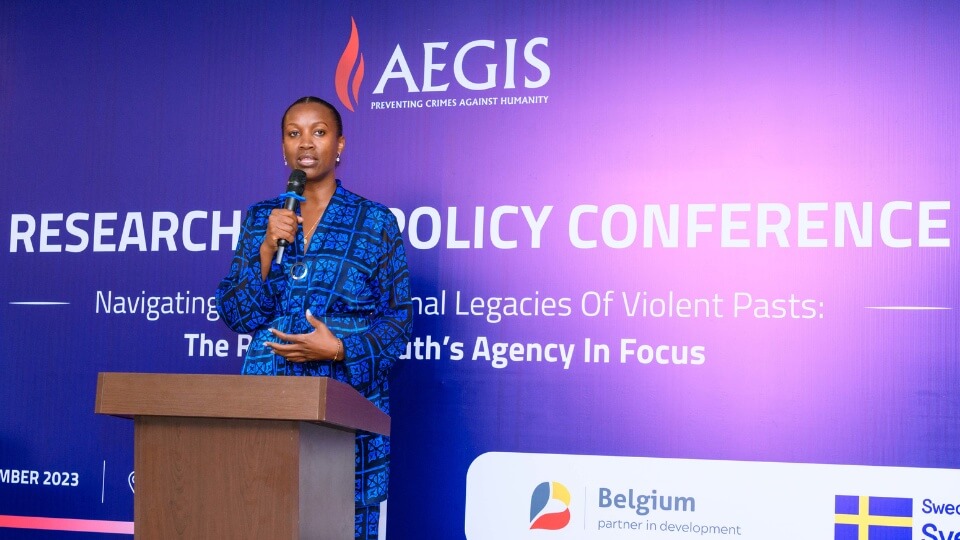

Supporting Rwanda’s journey from reconciliation to resilience
Carrying the theme ‘Exploring Rwanda’s Journey from Reconciliation to Resilience’, the National Research Based Dialogue event organised by the Aegis Trust in the Kigali Community Peace Centre at the Kigali Genocide Memorial (and on X / Twitter Space) on 2nd November brought together young people, researchers and decision makers to unpack the importance of critical thinking in decision-making and the promotion of tolerance, understanding and peaceful coexistence.
In his presentation for the event, Dr Aggée Shyaka Mugabe, a researcher with Aegis Trust’s research department, emphasized the significance of unity and resilience in post-genocide Rwanda. “In the Rwandan context, unity is not forgetting the bitter history of our country but rather we embrace it and its consequences, and we accept the differences present among people,” he said. “Unity comes primarily from interactions between people, especially those who suffered tragedies and in worst cases, genocide. Finally, unity comes from trust, and this is the beginning of normalcy after an event as incomprehensible as genocide. This trust is built through encouraging people to work together.”
Challenges were discussed, including the need for greater intergenerational dialogue and the impact of poverty on survivors of the 1994 Genocide against the Tutsi.
Ambassador Dr Francois Xavier Ngarambe stressed the role of youth in preserving memory. “The youth these days may not fully understand the importance of remembering. This is why you find that some are easily influenced by social media personalities that negate or deny the Genocide,” he said. “I encourage you all to keep hosting provocative and sensitive conversations such as these to interact with young people and emphasise the duty of memory preservation.”
Laurence Mukayiranga from the Ministry of Unity and Reconciliation highlighted the need for collaboration between institutions and researchers. “Findings of research and discussions would be very informative in order to make decisions and policies that effectively respond to some of the challenges that still exist,” she remarked.
Institutional collaboration, research-based policy-making and increased participation of all Rwandans in the journey to resilience will help ensure the achievement of sustainable peace. Events like these are a stepping-stone on that journey.


